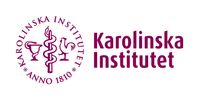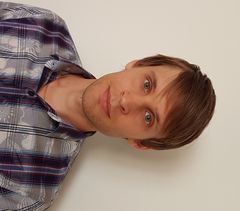New insight into how immune cells are formed
[PRESS RELEASE 2017-08-10] In contrast to what has been previously believed, development of blood stem cells to mast cells, a type of specialised immune cell, does not depend on a growth factor called stem cell factor. This has been demonstrated in a new collaborative study by researchers at Karolinska Institutet and Uppsala University, and published in the scientific journal Blood. The results could pave the way for new treatments for certain types of blood diseases.

Allergy and asthma affect a high percentage of the population. Mast cells are specialised immune cells that play an important role not only in these conditions but also in other diseases such as mastocytosis, a haematologic disease involving an increased number of mast cells. It has been commonly understood that the growth factor stem cell factor, which stimulates mast cell development, is essential for the formation of mast cells. Now researchers at Karolinska Institutet and Uppsala University have shown that this is not the case. The researchers analysed mast cells and their progenitors in blood from patients with chronic myeloid leukaemia, a disease of the blood.
”When the patients were treated with the drug imatinib (Glivec), which blocks the effect of stem cell factor, the number of mature mast cells dropped, while the number of progenitor cells did not change. We were thus able to conclude that mast cell progenitors did not require stem cell factor”, says Professor Gunnar Nilsson at the Department of Medicine, Solna, and the Centre of Excellence for Systemic Mastocytosis at Karolinska Institutet, and Visiting Professor at the Department of Medical Sciences, Uppsala University, who led the study.
By culturing the mast cell progenitor cells present in blood, which are relatively uncommon (about 10 cells per million white blood cells), the researchers found that mast cell progenitors could survive, divide and partially mature without stem cell factor. Instead, development can take place with the factors interleukin 3 and 6.
”The study increases our understanding of how mast cells are formed and could be important in the development of new therapies, for example for mastocytosis for which treatment with imatinib/Glivec is not effective. One hypothesis that we will now test is whether interleukin 3 can be a new target in the treatment of mast cell-driven diseases”, comments Joakim Dahlin, Researcher at the Department of Medicine, Solna, at Karolinska Institutet and first author of the study.
The research has been financed with support from the Swedish Research Council, the Swedish Cancer Society, Ollie and Elof Ericsson's Foundation, Hans von Kantzow's Foundation, Tore Nilson's Foundation, the Cancer and Allergy Foundation, The Cancer Research Funds of Radiumhemmet and Karolinska Institutet.
Publication: Joakim S Dahlin, Maria Ekoff, Jennine Grootens, Liza Löf, Rose-Marie Amini, Hans Hagberg, Johanna S Ungerstedt, Ulla Olsson-Strömberg, Gunnar Nilsson. KIT signaling is dispensable for human mast cell progenitor development. Blood, online 8 August 2017. doi: 10.1182/blood-2017-03-773374.
Contacts
For more information, please contact:
Gunnar Nilsson, Professor
Department of Medicine, Solna, Karolinska Institutet
Phone: +46 (0)8-5177 02 05, +46 (0)70-640 20 93
Email: Gunnar.P.Nilsson@ki.se
Joakim Dahlin, Researcher
Department of Medicine, Solna, Karolinska Institutet
Phone: +44 (0) 7449 554 015
Email: joakim.dahlin@ki.se
Images
Karolinska Institutet is one of the world’s leading medical universities. Its vision is to significantly contribute to the improvement of human health. Karolinska Institutet accounts for the single largest share of all academic medical research conducted in Sweden and offers the country’s broadest range of education in medicine and health sciences. The Nobel Assembly at Karolinska Institutet selects the Nobel laureates in Physiology or Medicine.
Subscribe to releases from Karolinska Institutet - English
Subscribe to all the latest releases from Karolinska Institutet - English by registering your e-mail address below. You can unsubscribe at any time.
Latest releases from Karolinska Institutet - English
New method reveals how the brain and inner ear are formed3.4.2025 20:00:00 CEST | Pressmeddelande
Researchers at Karolinska Institutet have developed a method that shows how the nervous system and sensory organs are formed in an embryo. By labelling stem cells with a genetic ‘barcode’, they have been able to follow the cells’ developmental journey and discover how the inner ear is formed in mice. The discovery, published in Science, could provide important insights for future treatment of hearing loss.
Fluoride in drinking water is associated with impaired childhood cognition7.3.2025 15:30:00 CET | Pressmeddelande
Elevated concentrations of fluoride can occur in well water, and in some countries, it is added to drinking water to counteract caries in the population. A study from Karolinska Institutet in Sweden now supports a few previous studies indicating that exposure to fluoride during the fetal stage or early childhood may impair cognition in children. The study is published in the journal Environmental Health Perspectives.
Children with ARFID face increased risk of disease17.2.2025 17:00:00 CET | Pressmeddelande
Children with avoidant restrictive food intake disorder (ARFID) have an elevated risk of developing psychiatric and physical conditions, a new study from Karolinska Institutet published in JAMA Pediatrics reports. The study highlights the importance of early identification to improve care of these children.
Preterm babies receive insufficient pain management27.1.2025 15:29:17 CET | Pressmeddelande
A large proportion of babies born very early need intensive care, which can be painful. But the healthcare system fails to provide pain relief to the full extent. This is shown by the largest survey to date of pain in neonatal care, now published in the journal Pain.
New study paves way for immunotherapies tailored for childhood cancers20.1.2025 17:00:00 CET | Pressmeddelande
Researchers at Karolinska Institutet and the Astrid Lindgren Children’s Hospital in Sweden have determined how children’s immune systems react to different kinds of cancer depending on their age. The study, which is published in the journal Cell, reveals significant differences between the immune response of children and adults, and has the potential to lead to new tailored treatments for children with cancer.
In our pressroom you can read all our latest releases, find our press contacts, images, documents and other relevant information about us.
Visit our pressroom

